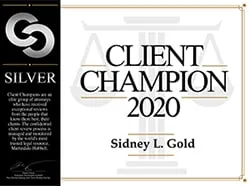Sexual harassment is consumed with power. Anyone who has ever experienced sexual harassment will tell you that the offender’s demeaning behavior is about controlling the victim.
Waitresses, waiters, and bartenders deal with this issue on a regular basis, often to the point where it is commonplace and even expected. That is because they work for tips, and the way they deal with their customers is a direct result of how much money they will bring in at the end of their shift. This may give the customer greater power over their server. When they risk offending a customer, they risk not being able to pay the electric bill or put food on the table.
Sadly, a worker’s ability to tolerate bad behavior may result in more money at the end of the day. In several states, advocates are pushing to change the equation by changing the laws. They believe that when restaurants are permitted to pay less than the minimum wage, they are making servers dependent on tips and more susceptible to abuse.
It is no secret that servers deal with a wide range of offenses from sexual comments and jokes to propositions for dates to outright groping. They are often afraid to report the offenses for fear of losing their jobs. Even when they do, management may not do anything to help because offending a customer, especially a repeat customer, means lost business. Many restaurants do not have human resource departments, and many servers and bartenders are not organized. However, recent court rulings have held employers liable for not protecting their workers from sexual harassment.
If you have experienced sexual harassment at work, the Philadelphia sexual harassment lawyers at The Gold Law Firm P.C. can help. Please call 215-569-1999, or contact us online for a free, confidential consultation. We can offer you guidance toward righting the wrongs and obtaining financial compensation for your suffering. We are in Philadelphia, and we serve clients from the surrounding areas, including Bucks County, Chester County, Delaware County, and Montgomery County.



































